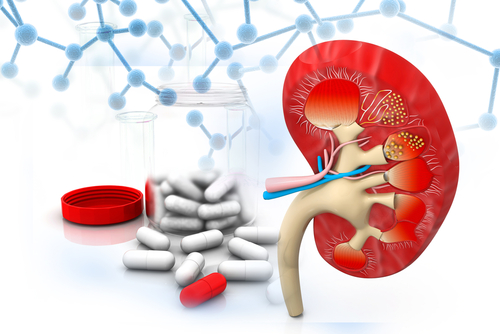FAQs About the aHUS Registry
Written by |

You may be considering enrolling in the ongoing global atypical hemolytic uremic syndrome (aHUS) registry.
Here are some frequently asked questions and answers about the registry to help you learn more about it.
What is the global aHUS registry?
The global aHUS registry is an observational study (NCT01522183) that Alexion Pharmaceuticals is sponsoring to collect post-marketing clinical data on the long-term safety of its two aHUS treatments, Soliris (eculizumab) and Ultomiris (ravulizumab-cwvb).
When does it run?
The registry opened in 2012 and runs through December 2023. If you joined, you’d be one of about 2,000 patients that the study is following.
Who is eligible to participate?
You may join if you are using Soliris or Ultomiris — but you are also welcome to participate if you are not using either therapy. Data across groups of patients will help in better understanding disease progression.
The registry is open to people of any age with a clinical aHUS diagnosis — boys and girls, men and women. Patients must give written consent to be able to participate. If the patient is younger than age 18, a parent or legal guardian must give written consent for the child to join the registry.
Where are the sites?
As of November 28, 2020, sites in the U.S., Canada, Australia, and a number of European countries are no longer recruiting patients.
Enrollment may be ongoing at sites across Belgium, France, Poland, and South Korea; contact and site location information is available on the clinical trial website.
Do participants receive treatment?
Because the registry is an observational study, participants do not receive any treatment — approved or experimental.
How does the aHUS registry work?
Study centers are responsible for patient enrollment, supplying the registry with basic medical information and data, and updating that information at regular intervals.
You will need to complete a questionnaire about your physical health and overall well-being every six months. The goal is to learn how living with aHUS, and its treatments, affect patients in their day-to-day lives.
The registry’s independent scientific advisory board, which is composed of leading aHUS researchers, controls how the data are used.
What are the aHUS registry’s goals?
Researchers designed the registry to capture real-world data, over time, on aHUS patients, including treatments, symptoms, and overall health.
Specifically, the study aims to assess the long-term manifestations of thrombotic microangiopathy, or the formation of blood clots in the body’s small blood vessels.
It also will measure other clinical outcomes, including morbidity and mortality, in aHUS patients using Soliris, Ultomiris, or other treatments.
How can the aHUS registry help?
By collecting the relevant information from people worldwide, scientists can learn more about the disease, treatment outcomes, and how best to manage it.
Data also can help educate physicians, many of whom may not be familiar with this rare disease.
Last updated: Nov. 30, 2020
***
aHUS News is strictly a news and information website about the disease. It does not provide medical advice, diagnosis, or treatment. This content is not intended to be a substitute for professional medical advice, diagnosis, or treatment. Always seek the advice of your physician or other qualified health provider with any questions you may have regarding a medical condition. Never disregard professional medical advice or delay in seeking it because of something you have read on this website.




